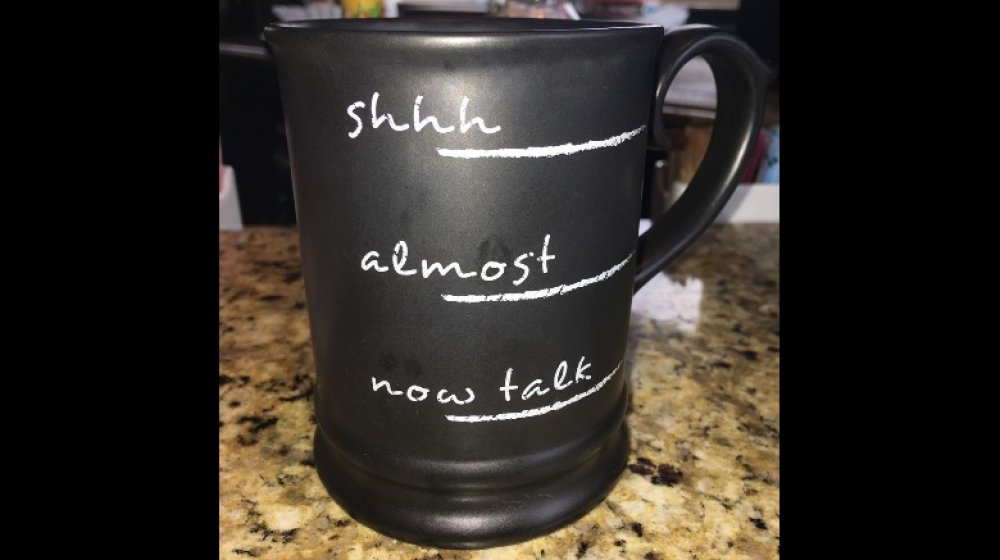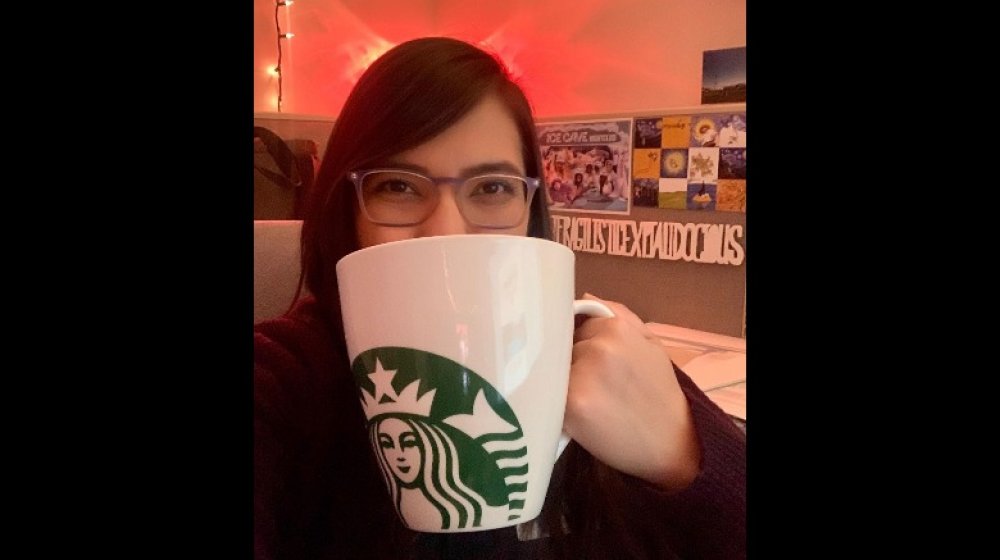This Is The Best Time Of The Day To Drink Coffee
We may receive a commission on purchases made from links.
While unscientific experts on alcohol have concluded the best time to start drinking is either "beer thirty," or "it's noon somewhere," real scientists have come up with meaningful answers to the question: "When is the best time of day to drink coffee?" Caffeine and alcohol may both be addictive, but you can use science to justify your coffee habit. Coffee turns out to be good for you. It may even be a fountain of youth for heart tissue, if a recent study on mice applies to humans (via Scientific American). So, go ahead and grab that coffee — just check your clock and make sure it's coffee thirty.
When is that, exactly? Scientists say you should drink coffee during those parts of the day when your cortisol levels are low, which depends on your circadian rhythm. We're going to do some science now, so grab a cup of coffee. We'll wait.
Drinking coffee first thing in the morning is not ideal
If the hormone cortisol has any claim to fame at all, it's for its reputation as the "stress hormone" (via Healthline). The brain uses cortisol to give us some extra get-up-and-go at certain times of the day, including the time shortly after we typically get out of bed (via Healthline). Right about that time, as our cortisol is firing up, many people are in the habit of brewing a pot of coffee. In fact, many coffee drinkers are convinced they can't do anything before that first cup of the day. "Don't talk to me until I've had my coffee" is such a familiar refrain that it's available on T-shirts and, appropriately, coffee mugs. But according to science, first thing in the morning is the wrong time to drink coffee.
We should wait an hour after awakening to take that first spirit-lifting sip of java, according to Taste of Home. That way, the caffeine will be most effective, compensating for the drop in cortisol that starts about that time. Inc. lists approximate times when our cortisol levels peak: 8 to 9 a.m., noon to 1 p.m., and 5:30 to 6:30 p.m. These times may vary for early risers and night owls, and you should adjust your schedule accordingly.
Drink up: Coffee is good for you
According to Inc., for the average person, a good time to get your first coffee fix of the day is between 9:30 and 11:30 a.m. To get that full cortisol-like effect, drink between four and six cups in that two-hour window. People who are pregnant, or who tend to get jittery or lose sleep over too much caffeine, should limit their intake. Otherwise, science has found no reason for you to worry about drinking too much coffee (via Smithsonian Magazine). But science has gone beyond saying coffee is not bad for you. The Mayo Clinic lists several known health benefits to coffee, including a reduced risk of Parkinson's disease, diabetes, and heart and liver diseases.
Drinking coffee first thing in the morning can be just a little bit unhealthy, according to Global News Canada. If you load up on caffeine when cortisol is high, then you are training your body to make less cortisol. You'll lose your natural ability to feel awake and energized to start the day and become more dependent on caffeine. Avoid lunchtime too, which is another cortisol peak, but go ahead and order that mid-afternoon quad cappuccino, if it'll let you sleep at night. As an alternative, you could take an after-lunch nap. Either way, your body will thank you.


